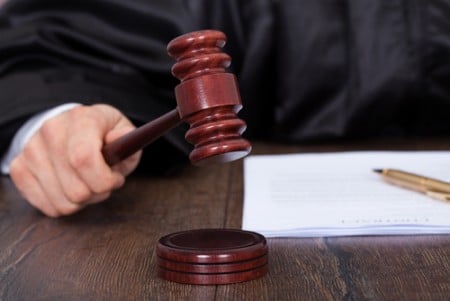Judge sanctions Cooley and its client for late-produced documents, says it's unclear who is to blame

A federal judge in Norfolk, Virginia, has imposed sanctions on the Cooley law firm and its client in a patent infringement case for failing to turn over some discovery documents until late in the litigation.
U.S. District Judge Henry Coke Morgan Jr. did not reveal the amount of the sanction in his Jan. 27 opinion (PDF), Law360 (sub. req.) reports. Morgan said it was impossible to determine from the record who was at fault for the discovery violations, but both Cooley and its client were responsible.
Though the client, Invincea Labs, eventually produced the documents, “it did so only a few weeks before trial and after claiming that they were irretrievable and duplicative,” Morgan said.
Morgan ruled in a suit against Invincea by Vir2us Inc. that alleged patent infringement related to software security. At issue were late-produced minutes and presentations from Invincea board meetings. An Invincea manager had said two months before the documents were produced that everything the company could find had already been turned over. The suit settled before trial.
Invincea’s general counsel was a Cooley partner and had regularly attended Invincea board meetings. Morgan said he had asked whether Invincea had questioned the general counsel about the missing board minutes, but Invincea maintained it didn’t believe it was necessary because of a belief that everything had been turned over. “Clearly, defendant was mistaken,” Morgan said.
Invincea had said it had searched for documents mentioning “Vir2us”; some of the later-produced documents contained the Vir2us logo rather than a text mention.
An Invincea manager had instructed 14 employees to search for documents mentioning Vir2us after the suit was filed, but two management employees never responded. There was no follow-up, Morgan said. After the board documents were produced in May 2016, a search of emails and computers found three emails mentioning Vir2us—in searchable text, rather than in graphic form.
None of the late-disclosed documents could be classified as a “smoking gun,” Morgan said. But their late disclosure would have made it difficult for Vir2us to incorporate them in its case, had it gone to trial, Morgan said.
Invincea had argued that mistakes were made, but they weren’t the result of bad faith. Morgan concluded that “the evidence falls short of persuading the court that [Invincea] or its lead counsel acted in bad faith, but neither does the evidence establish that defendant acted in good faith.”
“It is impossible from the record to determine who among defendant’s employees and lead counsel were at fault for the discovery violations and to what degree,” Morgan said. “It is not the court’s duty to unravel the details and determine the actors’ degrees of responsibility. What occurred is, at bottom, sanctionable conduct for which defendant and its principal counsel are both responsible.”



